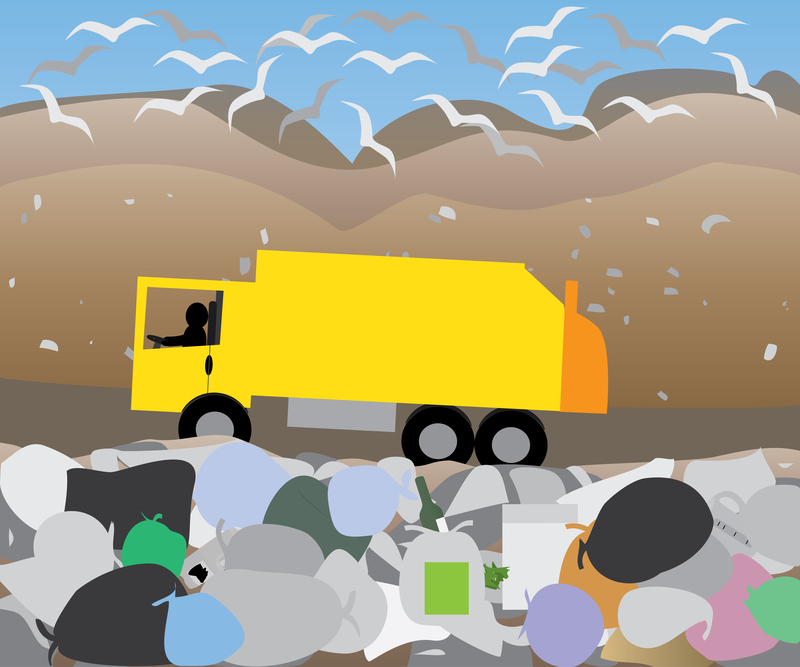Fostering Environmental Awareness Through Recycling
In recent years, fostering environmental awareness through recycling has become essential in battling ecological crises such as climate change, resource depletion, and unchecked pollution. Embracing recycling as part of our everyday lives helps preserve the planet not only for ourselves but also for generations to come. This comprehensive article explores the importance of environmental consciousness, the role recycling plays in this endeavor, actionable strategies for community engagement, and practical tips for making recycling a habitual practice.

Understanding Environmental Awareness
Environmental awareness refers to recognizing how our actions impact the natural world and taking steps to minimize negative effects. It includes understanding issues like:
- Pollution control
- Resource conservation
- Biodiversity protection
- Sustainable development
Cultivating environmental knowledge encourages responsible behavior. When society collectively understands the consequences of waste generation, such as overflowing landfills and hazardous emissions, individuals are more likely to adapt sustainable practices like recycling.
The Connection Between Environmental Awareness and Recycling
Recycling stands at the forefront of eco-friendly actions. It involves the collection and processing of materials (such as glass, plastic, metals, and paper) that would otherwise be discarded as trash, turning them into new products instead. Encouraging recycling efforts strengthens environmental awareness by making people conscious of resource limitations and the need for responsible consumption.
Why Is Recycling Crucial For The Environment?
The environmental and economic benefits of recycling are significant. Here's why it matters:
- Saves Natural Resources: Recycling conserves finite resources like minerals, timber, and water, reducing the need for raw material extraction.
- Reduces Landfill Volume: By diverting waste from landfills, recycling lowers pollution risk and preserves land for better uses.
- Minimizes Energy Usage: Producing recycled materials takes less energy than manufacturing from virgin resources.
- Decreases Greenhouse Gas Emissions: Using recycled products significantly cuts carbon footprint, helping slow global warming.
- Promotes Circular Economy: Recycling supports a sustainable loop where products are reused and remanufactured, reducing dependency on new materials.
Environmental Awareness Through Recycling: Real-Life Impact
For instance, recycling one ton of paper saves 17 trees, 7,000 gallons of water, and reduces air pollution by 74%. Recycling aluminum saves up to 95% of the energy required to make aluminum from raw bauxite ore. These tangible examples illustrate how increased environmental awareness and recycling can make a real difference.
Methods to Foster Environmental Awareness Through Recycling
Transforming recycling into a lifestyle involves more than setting out bins. Here are effective ways to foster environmental consciousness via recycling:
1. Educational Campaigns
Education lies at the heart of environmental activism. Schools, universities, and community centers can organize workshops, seminars, and projects to educate individuals about the environmental, social, and economic implications of waste and recycling.
- Interactive workshops teach practical recycling skills.
- Environmental clubs promote regular clean-up drives.
- Presentations and documentaries illustrate global waste challenges.
2. Community Involvement and Participation
Community recycling initiatives create a sense of shared responsibility. Local governments and non-profits can establish:
- Neighborhood recycling centers for convenient drop-offs.
- Incentive programs that reward high recycling rates.
- Public sorting stations to simplify separation of recyclables.
These projects foster cooperation, dialogue, and a collective drive toward a cleaner environment.
3. Incorporation of Recycling in Corporate Social Responsibility (CSR)
Businesses have a powerful platform to:
- Embed recycling programs in operational facilities.
- Reduce single-use plastic in cafeterias and offices.
- Partner with recycling organizations for responsible waste management.
When companies prioritize recycling, they set positive examples for employees and influence customer choices, boosting environmental awareness on a larger scale.
4. Accessible Recycling Infrastructure
For recycling to be effective, it needs to be easy and accessible. Municipalities can simplify the process by:
- Implementing curbside recycling pick-up programs.
- Placing clearly marked recycling bins in public spaces.
- Offering resources to educate residents on waste sorting.
5. Digital Engagement and Awareness Campaigns
The digital age presents powerful tools. Leveraging social media, informational blogs, interactive quizzes, and email newsletters can amplify the message of environmental stewardship. These digital campaigns reach broader audiences and actively encourage daily recycling habits.
Developing a Recycling Mindset: Changing Habits for a Greener Planet
Making recycling habitual requires more than occasional efforts--it is a shift in everyday mindset. Here are actionable ways to internalize recycling as a lifestyle:
Embrace the Three R's: Reduce, Reuse, Recycle
- Reduce: Minimize waste by purchasing only what is needed, avoiding excess packaging, and opting for products with longer life spans.
- Reuse: Find new purposes for items before discarding them. For example, repurpose glass jars as containers or donate old clothes instead of throwing them away.
- Recycle: Properly sort waste into the appropriate recycling streams. Stay updated on local recycling guidelines as they may change over time.
Stay Informed and Adapt
As technologies and recycling systems evolve, stay informed about:
- What materials are recyclable in your area.
- New collection technologies and facilities.
- Changes in recycling policies and environmental laws.
Lead by Example
Whether at work, at home, or in your community, demonstrate dedication to recycling. Simple acts like organizing a recycling drive or helping neighbors understand sorting rules can inspire others to join the movement.
Recycling Challenges and How to Overcome Them
Despite its advantages, recycling faces notable challenges:
- Contamination: Incorrect sorting can spoil recycling batches, making them unusable.
- Lack of awareness: Some individuals aren't familiar with recycling guidelines or the significance of recycling.
- Limited infrastructure: Not all communities have access to proper recycling facilities.
Addressing these obstacles calls for:
- Ongoing public education about recyclable materials.
- Improved labeling on products and bins.
- Greater funding for local recycling programs.
Youth Engagement: The Future of Recycling and Environmental Responsibility
Children and teenagers are vital to the future of our planet. By instilling environmental awareness through recycling at an early age, we ensure that sustainability becomes second nature for forthcoming generations.
- Integrate recycling lessons into school curricula through hands-on projects.
- Encourage eco-clubs to organize community clean-ups and awareness events.
- Reward innovative recycling ideas that address complex waste problems.
Motivating youth not only transforms habits but cultivates lifelong environmental stewards.
The Impact of Technology on Recycling and Environmental Awareness
Technological innovations continue to revolutionize the way recycling and environmental awareness are approached. For example:
- Smart waste sorting systems use AI to identify and sort recyclables automatically.
- Mobile apps provide real-time guidance on how to recycle specific items.
- Blockchain technology enhances transparency in the recycling supply chain, ensuring materials are genuinely recycled.
These tools not only streamline recycling but also deepen public engagement and knowledge.
Global Initiatives and Success Stories
Around the world, cities and countries are embracing environmental awareness through recycling:
- Sweden recycles nearly 99% of its waste, thanks to a culture of environmental mindfulness and comprehensive waste management systems.
- San Francisco has implemented Zero Waste policies, aiming to divert all waste from landfill through recycling, composting, and reuse.
- Germany's robust deposit return scheme encourages the return and recycling of bottles and cans.
These global case studies illustrate how fostering environmental awareness through recycling leads to measurable improvements in sustainability and community well-being.
How Individuals Can Make an Impact
Everyone plays a part in driving environmental change through everyday actions. Here are some practical tips:
- Get to know your local recycling program: Understand what materials are accepted and how to prepare them.
- Buy recycled products to support markets for recycled materials.
- Normalize conversations about environmental practices with friends and family.
- Volunteer for clean-up events or join community recycling councils.
Small, consistent steps create long-term benefits for the environment.

Conclusion: The Ongoing Journey of Environmental Awareness and Recycling
Fostering environmental awareness through recycling is both a collective and personal mission. It represents an enduring commitment to the planet's health, economic well-being, and social responsibility. By integrating recycling into education, community involvement, business practices, and daily life, we can ensure that our ecological footprint is minimized and sustainable choices are maximized.
As the environmental movement grows, so too does our ability to affect positive change. When individuals, businesses, and governments work together to spread recycling awareness, the result is a cleaner, healthier, and more sustainable world for all.
Let us make a conscious effort every day--because our future depends on what we do today.
Frequently Asked Questions (FAQs) About Recycling and Environmental Awareness
-
What items can usually be recycled?
Commonly recyclable items include paper, cardboard, certain plastics (like #1 and #2), glass bottles, and metals. Always check with your local recycling program for specifics. -
Why is contamination of recyclables a problem?
Contaminated recycling (like food residue or mixed materials) can ruin entire loads, meaning recyclable materials end up in landfills instead. -
How does recycling foster environmental awareness?
Recycling forces individuals to consider the lifecycle of products and the resources they consume, nurturing a habit of sustainability and mindful consumption.
Together, fostering environmental awareness through recycling will pave the way for a greener, cleaner tomorrow.